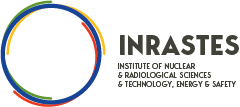- 04 / 28 : AirTech Lab participation in the 5th Verde.tec international exhibition which took place on March 17-19, 2023 at the MEC Paianias
- 01 / 31 : Participation in the event for the “Smart, Specialized Environmental Observatory in Messinia” – Presentation of the first results from the AirTech Lab
- 09 / 02 : “Smart, specialized environmental observatory in Messinia (ISEO)”
- 04 / 08 : 6th International Conference on New Photocatalytic Materials for Environment, Energy and Sustainability, 4-6/4/2022, Ljubljana, Slovenia
- 04 / 07 : TREEADS 1st brochure is now available!
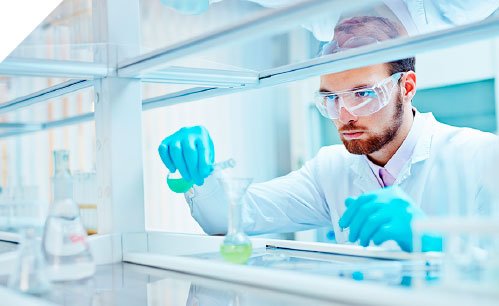
The lab
The Airtech Lab belongs to the Institute of Nuclear & Radiological Sciences & Technology, Energy & Safety of NCSR “DEMOKRITOS”. The purpose of the lab is to develop and implement integrated methodologies for understanding atmospheric chemical and physical processes and assessing their interactions with human health.
Research Activity
Research activity is synergistic and combines the use of laboratory
and computer platforms while also incorporating innovative technologies such as manned and in-aircraft (LMA, UAV),
modern Internet of Thinks (IoT) technologies as well as a combined application of Citizen Science
Indoor Air Quality and Health

Comprehensive study of the indoor air quality of buildings including all chemical factors (particles, organic and inorganic pollutants), as well as physical parameters (eg. temperature, light intensity, ventilation) that determine the comfort of users inside them
Atmospheric Pollution
and Climate Change
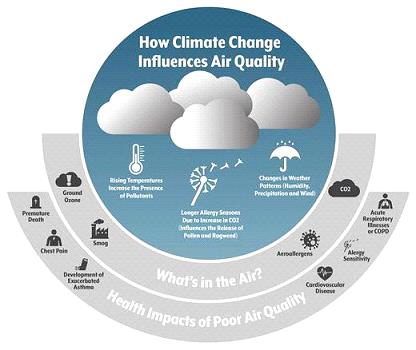
AirTech Lab distinctive strengths are in urban air pollution, chemical composition of aerosols, analytical measurement technologies, remote sensing, climate change and human health. More specifically:
· Atmospheric pollutant measurements (volatile organic compounds, inorganics, POP’s) in urban and rural environments using state of the art laboratory equipment and remote sensing devises and infrastructures followed by health impact assessment.
· Investigation of the effect of meteorology on the pollution levels of a wider area and a combined study with application of recipient models (source apportionment). Focus on areas of particular interest such as areas adjacent to industrial sectors, areas characterized by frequent dust transfers, high biomass burning, coastal areas nearby large ports etc.
· Investigation of greenhouse gas (GHG) levels and their emission sources as major atmospheric components with a direct impact on climate change (development of an innovative sampling system – analysis of GHGs).
Improvement of Air Quality
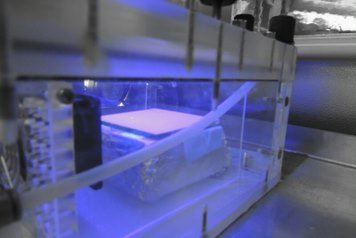
· Εργαστηριακές και πραγματικής κλίμακας εφαρμογές καινοτόμων φωτοκαταλυτικών υλικών για τον έλεγχο της ικανότητάς τους να αποσυνθέτουν τους ατμοσφαιρικούς ρύπους σε αστικό και εσωτερικό περιβάλλον
Enviromental quality

Contribute to the decision-making of policies and guidelines related to the resilience of the urban environment to air pollution as well as to the harmonization with European standards.

Comprehensive study of the indoor air quality of buildings including all chemical factors (particles, organic and inorganic pollutants), as well as physical parameters (eg. temperature, light intensity, ventilation) that determine the comfort of users inside them
Atmospheric Pollution and Climate Change
AirTech Lab distinctive strengths are in urban air pollution, chemical composition of aerosols, analytical measurement technologies, remote sensing, climate change and human health. More specifically:
· Mass and Chemical composition of particulate matter (PM) using advanced laboratory analysis, with emphasis on the main components of the aerosol such as organics (polyaromatic hydrocarbons), ionic composition (chloride, sulfate, nitrate, phosphate, ammonia, ammonia) and organic/elemental carbon (OC/EC).
· Atmospheric pollutant measurements (volatile organic compounds, inorganics, POP’s) in urban and rural environments using state of the art laboratory equipment and remote sensing devises and infrastructures followed by health impact assessment.
· Investigation of the effect of meteorology on the pollution levels of a wider area and a combined study with application of recipient models (source apportionment). Focus on areas of particular interest such as areas adjacent to industrial sectors, areas characterized by frequent dust transfers, high biomass burning, coastal areas nearby large ports etc.
· Investigation of greenhouse gas (GHG) levels and their emission sources as major atmospheric components with a direct impact on climate change (development of an innovative sampling system – analysis of GHGs).

AQ Improvement (Photocatalysis)
· Laboratory and real scale applications of innovative photocatalytic materials for testing their ability to Degrade Air Pollutants in urban and indoor environment.
Within a Specially Designed Reactor, the evaluation of the materials’ photocatalytic performance is carried out through the calculation of certain photocatalytic and chemical kinetics parameters. Additionally, the mechanisms of the chemical reactions taking place between nanomaterials and gaseous pollutants and the formation of by-products during the photocatalytic reactions are investigated.

Contribute to the decision-making of policies and guidelines related to the resilience of the urban environment to air pollution as well as to the harmonization with European standards.
Provision of Specialized Research Service
The capability of AirTech Lab to measure with accuracy and reliability the most important air pollutants, in terms of their impact on air quality and human health, has resulted in the provision of advanced services to public and private organizations.
Accreditations
The AirTech Lab is accredited according to EN ISO/IEC 17025:2017
by the Hellenic Accreditation System
Υπηρεσίες
Το πρότυπο εργασίας του εργαστηρίου θα βασιστεί σε εκτεταµένη συνεργασία µε διεθνή επιστηµονικά δίκτυα,
συµπεριλαµβανοµένων ευρωπαϊκών επιτροπών, πανεπιστηµίων, ερευνητικών κέντρων, ρυθµιστικών αρχών και της βιοµηχανίας.
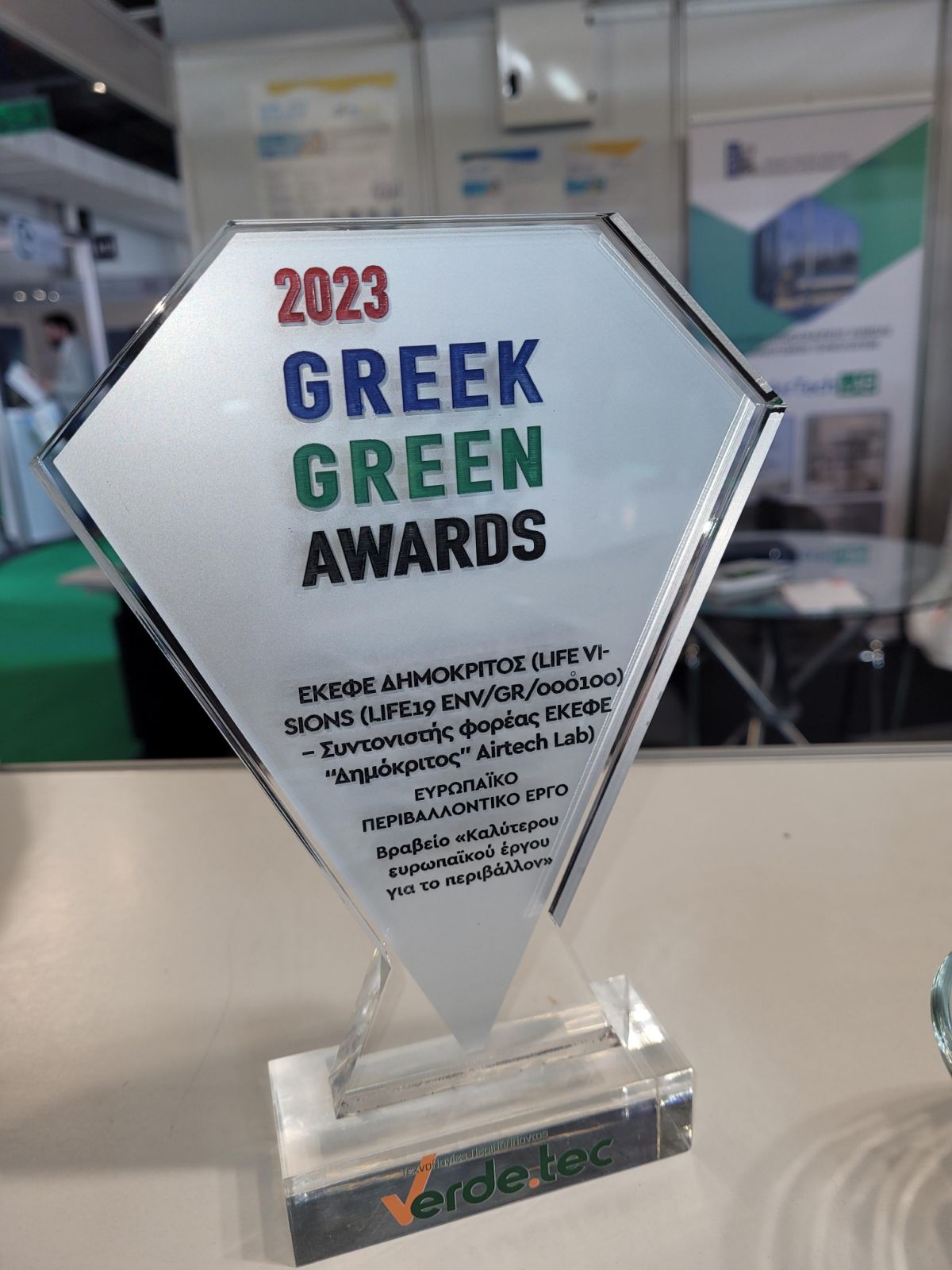
AirTech Lab participation in the 5th Verde.tec international exhibition which took place on March 17-19, 2023 at the MEC Paianias
AirTech Lab participated in the 5th international exhibition Verde.tec which took place on March 17-19, 2023 at MEC Paianias. At the exhibition, visitors had the
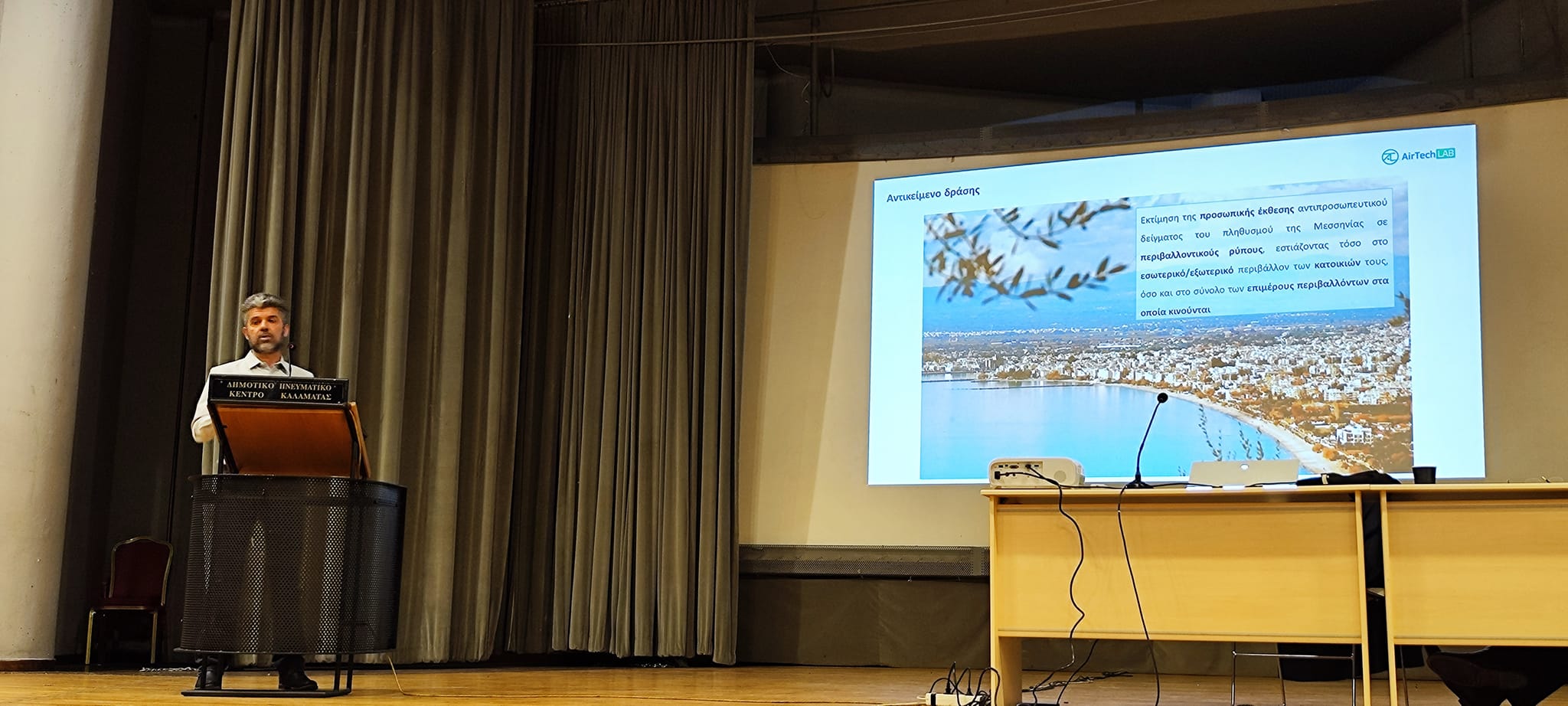
Participation in the event for the “Smart, Specialized Environmental Observatory in Messinia” – Presentation of the first results from the AirTech Lab
Οn Friday 27/01/2023 an event for the “Smart, Specialized Environmental Observatory in Messinia” project was held at the Municipal Cultural Center of Kalamata. In the
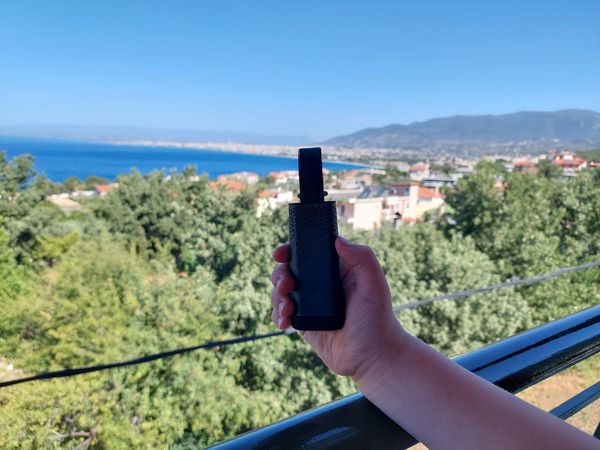
“Smart, specialized environmental observatory in Messinia (ISEO)”
More than 100 citizen volunteers are taking part, carrying equipment to measure key air pollutants and will monitor the levels of pollution they are exposed
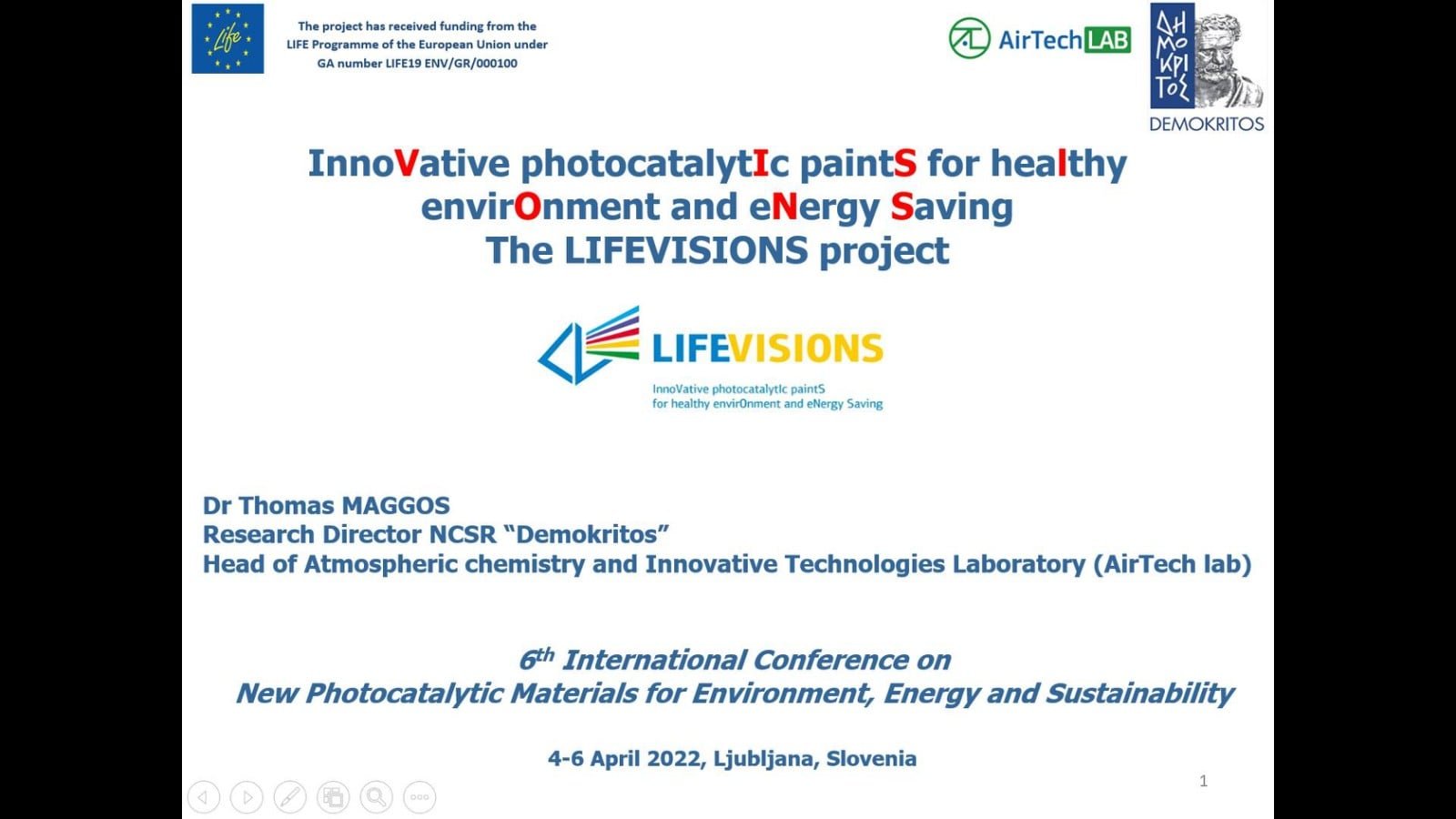
6th International Conference on New Photocatalytic Materials for Environment, Energy and Sustainability, 4-6/4/2022, Ljubljana, Slovenia
Presentation of LifeVisions project at the 6th International Conference on New Photocatalytic Materials for Environment, Energy and Sustainability in Ljubljana.
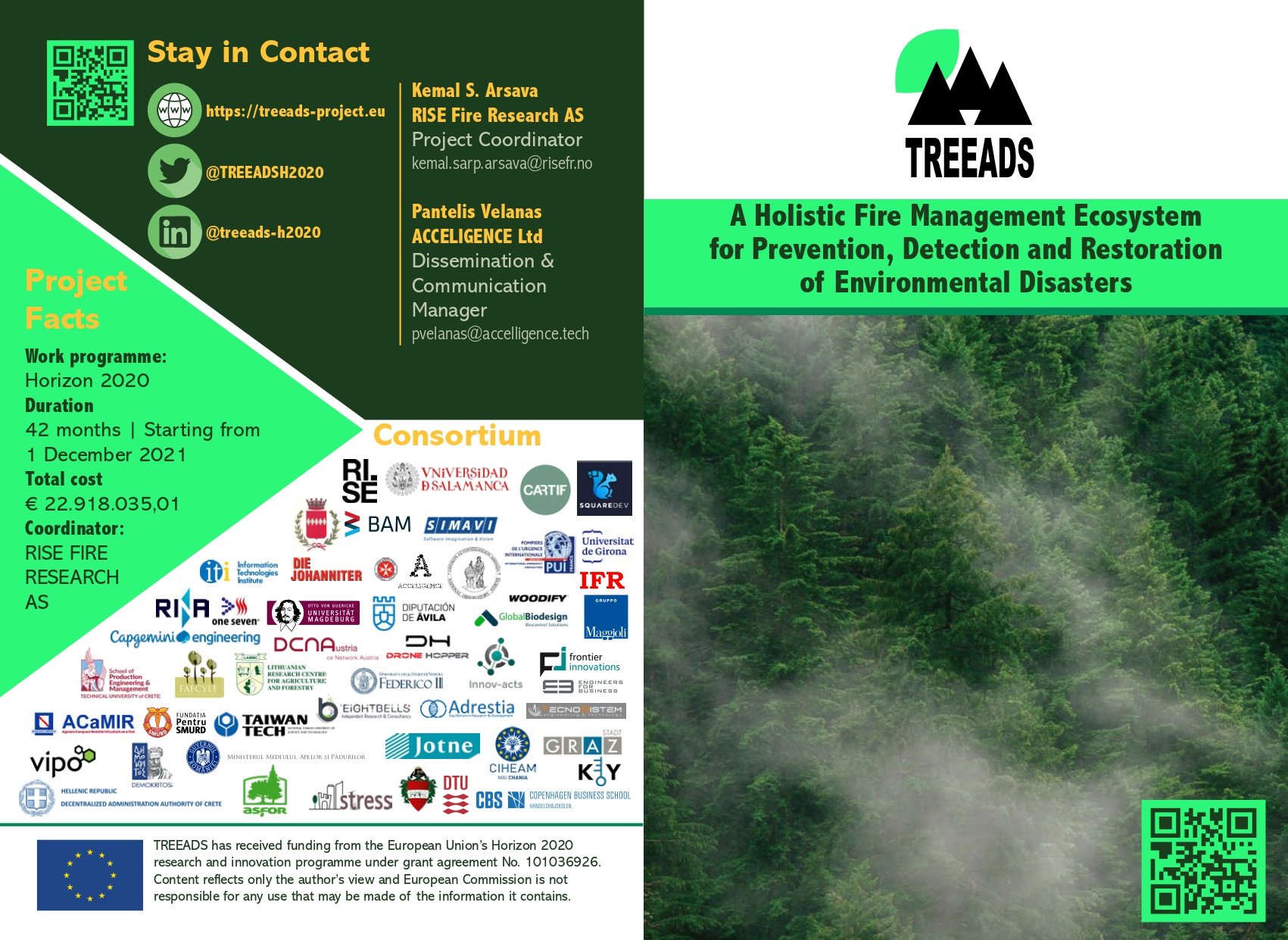
TREEADS 1st brochure is now available!
The first official brochure of the DRYADS project is now available! For more info check the project’s website https://treeads-project.eu/

TREEADS- New project for Airtech Lab
TREEADS Horizon 2020 project (GA101036926) The new project TREEADS launches on 1st of December 2021 with the participation of Airtech Lab. The TREEADS project will
European and National Projects
The AirTech Lab participates in a significant number of European and National Projects funded by the EC (HORIZON 2020, LIFE, FP7 etc.) and National Funds (Regional Operational Plans)







